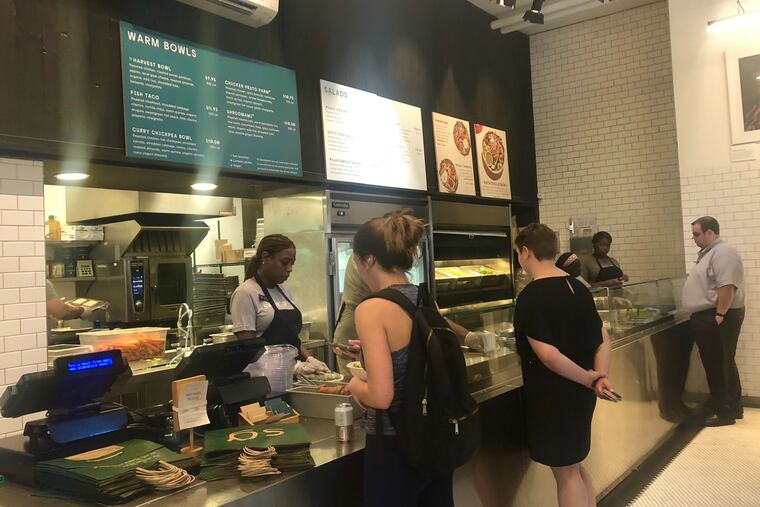Philadelphia workers greet new cashless-store ban: ‘I feel like we can serve everyone now’
Those in favor of the ban argue that cashless stores discriminate against poor consumers who do not have access to credit or bank accounts.

In the brightly lit cafe nestled in the shadow of Philadelphia’s City Hall, Marla Barnes smiled as she rang up the customer’s coffee order, sliding the weathered bills into the cash drawer.
Cash payments hadn’t always gone so smoothly, the Bluestone Lane barista remembered. The coffee chain stopped accepting cash in October 2016 to improve efficiency, but not everyone was on board with electronic-only payment.
When she worked at the chain’s now-closed outpost in King of Prussia, Barnes said, turning away cash-paying would-be customers became a routine part of her job.
“We had to turn people away a lot," she said. “It was tough; we love our customers, and you know, you want people to have a good experience when they’re here.”
On a couple of occasions, the 22-year-old barista said she even resorted to using her own credit card to purchase the cash-carrying customer’s coffee.
In August, Barnes transferred to Bluestone’s Philadelphia location, where she’s now obligated to accept paper money, after the city’s historic ban on cashless stores went into effect this week.
“It’s a relief,” Barnes said. “I feel like we can serve everyone now.”
In February, Mayor Jim Kenney signed off on the law prohibiting most retailers from refusing to take cash or charging cash-paying customers extra, making Philadelphia the first major U.S. city to ban cashless stores. Violators can face fines of up to $2,000 per violation.
The ban does not include state government offices, which are used by tens of thousands of residents and say they won’t accept cash as payment. The legislation also exempts some businesses, such as wholesale clubs, parking lots, and garages, and transactions conducted over the phone, mail, or internet.
Payments that aren’t made person-to-person, such as arranging for an Uber or Lyft ride over an app, or vending machine purchases, are also carved out from Philadelphia’s ban.
Americans are increasingly less reliant on paper bills and coins, a 2018 Pew Research Center survey found. Electronic forms of payment reduce risk of robbery, and increase efficiency and tax compliance, retailers say.
But, those in favor of the ban argue that cashless stores also discriminate against poor consumers who may not have access to credit or bank accounts.
In Philadelphia, more than 400,000 residents live below the poverty line, according to Pew . As of 2017, nearly 6% of residents in the region did not have a bank account, and roughly 22% were considered “underbanked,” according to the Federal Deposit Insurance Corp.
Following Philadelphia, San Francisco and New Jersey also passed laws this year requiring retailers to take cash. Washington, New York, and Chicago have all introduced their own versions of legislation banning no-cash retail. Massachusetts has required its businesses to accept cash since 1978.
As the ban officially took effect this week, evidence that cashless history was in the making was scarce at the Spring Garden Whole Foods’ “Restaurant Row,” where "credit and debit only” placards greeted customers at each register.
But, cashiers there explained, those interested in paying for their restaurant food with paper bills could check out inside the grocery store, instead.
In line at the formerly cashless Center City Sweetgreen on Wednesday, Chris Heavener readied his credit card to pay for a salad.
“I like paying with a card because you can pay it off every month, with cash you really can’t do that,” he said. “But it’s good people have the option.”
As the lunch rush filled the store, cashier Sherice Burke rang up a flurry of $10 salads, scanning phones, rewards points, credit cards — and counting cash.
“There’s really no difference,” Burke shrugged. “Sometimes it takes a little longer to make change."
“It just means we’re able to serve more customers,” said her coworker Meerah Blake. “Before, we had to turn people away."
Staff writer Christian Hetrick contributed to this article.